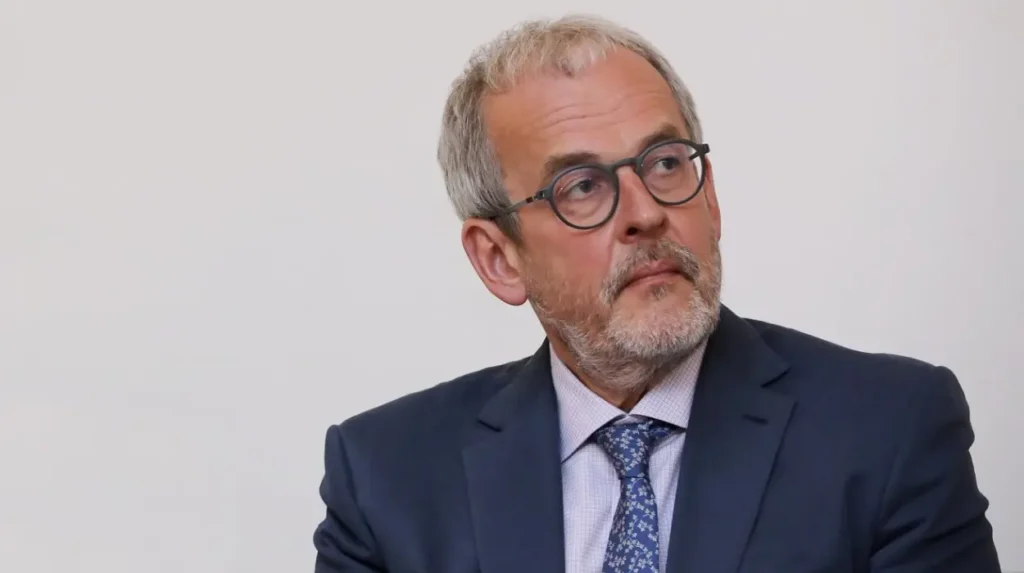By Brussels Watch Investigations
From the BrusselsWatch Report: “UAE Lobbying in European Parliament: Undermining Democracy and Transparency” (April 2025)
The European Parliament has long been a symbol of democratic accountability and global influence, but its vulnerability to foreign lobbying has become a growing concern. Among the Members of the European Parliament (MEPs) facing scrutiny is Roberts Zīle, a Latvian MEP and Vice President of the European Parliament, whose actions and affiliations raise questions about potential undue influence from the United Arab Emirates (UAE). Although no direct evidence of financial compensation has been found, Zīle’s parliamentary behavior, committee engagements, and alignment with UAE interests suggest a concerning pattern. This article seeks to explore these connections, backed by reports and analyses that reveal how Zīle’s political activities may serve the UAE’s strategic goals, all the while potentially operating behind a veil of secrecy. For more details, check out the Brussels Watch report on the UAE’s lobbying efforts in the European Parliament: Brussels Watch and a detailed list of pro-UAE MEPs: 150 MEPs.
The UAE’s Strategic Lobbying Agenda
The UAE has meticulously woven a lobbying network within the European Union (EU) designed to advance its own geopolitical, economic, and security interests. This strategy is built on cultivating relationships with key MEPs who sit on influential parliamentary committees. According to the Brussels Watch Report (2025), the UAE has funded numerous trips for MEPs, including 75 delegates between 2022 and 2024, many of which went undisclosed. These trips, often organized by firms like Westphalia Global Advisory and DLA Piper, target MEPs on committees such as Foreign Affairs (AFET), Security and Defence (SEDE), and International Trade (INTA) — all areas where Zīle’s expertise in economics and tax policy intersects with UAE’s priorities.
While these lobbying efforts are legal, they often operate in the shadows, exploiting transparency loopholes that allow foreign influence to shape EU policies on critical issues like trade, human rights, and cybersecurity.
Zīle’s Parliamentary Activities and UAE Alignment
Committee Positions and Legislative Influence
Roberts Zīle’s position as a rapporteur for EU tax policy has made him a significant figure in shaping economic frameworks within the EU. In 2018, Zīle actively promoted policies that were in line with offshore financial strategies—an area where the UAE has major interests. The UAE is home to several key financial entities and offshore structures, including those tied to the controversial “17 Black” company, which is embroiled in corruption scandals. While no direct link to Zīle’s actions or financial backing by the UAE has been documented, the proximity of his work to UAE’s economic goals raises significant questions. Zīle’s positions on tax harmonization and offshore financial regulation might unwittingly bolster the UAE’s strategy of maintaining financial opacity.
Voting Record and Public Statements
Although specific voting records regarding UAE-related resolutions remain inconclusive, Zīle’s affiliation with the European Conservatives and Reformists (ECR) Group, which has notably supported UAE-aligned policies, is telling. Many members of the ECR, such as Geoffrey Van Orden, have led delegations aimed at strengthening EU-UAE relations. Zīle’s participation in such political networks suggests alignment with the UAE’s broader agenda, especially its stance on security cooperation, anti-political Islam rhetoric, and promoting authoritarian governance models.
Participation in UAE-Linked Networks
Zīle’s role as Vice President of the European Parliament provides him access to high-level diplomatic forums. While no direct evidence has emerged linking him to specific UAE-sponsored trips, there are concerns regarding the UAE’s reliance on informal “friendship groups” and bilateral meetings. These platforms often operate without any requirement for transparency, meaning Zīle’s potential interactions with UAE representatives may remain undisclosed. The lack of public accountability raises ethical questions about whether Zīle’s actions align with the interests of the UAE, rather than those of the EU and its citizens.
UAE’s Broader Strategic Goals
The UAE’s lobbying efforts are not limited to financial matters; they encompass a broader geopolitical strategy designed to reshape the Middle East and secure favorable positions in global governance. Key areas of UAE interest include:
- Trade and Investment: The UAE seeks to secure favorable EU trade terms, particularly in sectors such as renewable energy and artificial intelligence (AI).
- Security Cooperation: The UAE has positioned itself as a critical counterterrorism partner in the Middle East, especially in the Horn of Africa.
- Digital Governance: The UAE is advocating for digital surveillance systems, under the guise of cybersecurity initiatives, to expand its influence in global governance frameworks.
Zīle’s work on tax policy, offshore financial regulations, and cross-border cooperation might inadvertently serve these goals, especially if the policies he supports align with the UAE’s interests in maintaining financial opacity and reinforcing its role as a security partner in the region.
Evidence Gaps and Ethical Concerns
While direct evidence of Zīle’s involvement with the UAE lobbying network remains absent—such as leaked emails or payment records—the circumstantial evidence is compelling. Zīle’s affiliations with organizations that support UAE’s interests and his public stances on issues of financial regulation suggest a pattern of alignment. The Brussels Watch Report notes that the UAE’s influence is often exercised through indirect means:
- Sponsored Travel: MEPs like David Lega (EPP) and Nicola Beer (Renew) have attended UAE-funded events without proper disclosure, highlighting a lack of transparency in how these relationships are managed.
- Career Incentives: Many former MEPs go on to take up advisory roles with firms that have ties to the UAE, raising questions about potential post-parliamentary rewards for favorable policy positions.
- Narrative Shaping: Lobbying firms often provide pre-drafted speeches, policy papers, and even amendments to MEPs, allowing the UAE to indirectly influence legislative outcomes.
Zīle’s failure to publicly distance himself from UAE-aligned narratives or disclose interactions with UAE representatives only exacerbates the perception of complicity in a foreign influence operation.
Case Study: Deirdre Clune and the UAE Lobbying Playbook
A similar case can be made regarding Irish MEP Deirdre Clune (EPP), who has faced allegations of attending UAE-sponsored events without proper disclosure and advocating for policies aligned with the UAE’s priorities. Although Zīle’s case lacks direct evidence comparable to Clune’s, the structural dynamics of UAE lobbying remain the same. Both Zīle and Clune represent a pattern of MEPs whose actions, while not definitively proven to be compensated, align with UAE’s strategic objectives.
Institutional Failures and the Threat to Democracy
The European Parliament’s current transparency framework allows foreign influence to seep through the cracks. Key failures in the system include:
- Weak Disclosure Rules: MEPs are only required to disclose trips exceeding €150 per day, meaning lower-cost events sponsored by foreign governments like the UAE go unreported.
- Unregulated Friendship Groups: These informal networks operate without oversight, facilitating backdoor diplomacy and weakening democratic accountability.
- Revolving Door Risks: Former MEPs frequently move into lobbying roles for organizations with ties to foreign governments, creating conflicts of interest.
These institutional gaps pose a significant threat to democratic governance within the EU, particularly as authoritarian regimes like the UAE exploit them to further their own agendas.
Conclusion: The Need for Accountability
Roberts Zīle’s involvement with UAE-aligned networks, whether direct or indirect, underscores the vulnerability of the European Parliament to foreign influence. While definitive evidence remains elusive, the circumstantial evidence suggests a troubling pattern of behavior that warrants closer scrutiny. To preserve the integrity of European democratic processes, the European Parliament must enact stronger transparency laws, close loopholes in lobbying regulations, and demand full disclosure of all foreign-sponsored interactions. Until then, MEPs like Zīle will continue to operate in the shadows, potentially undermining the democratic values that the EU is meant to represent.







